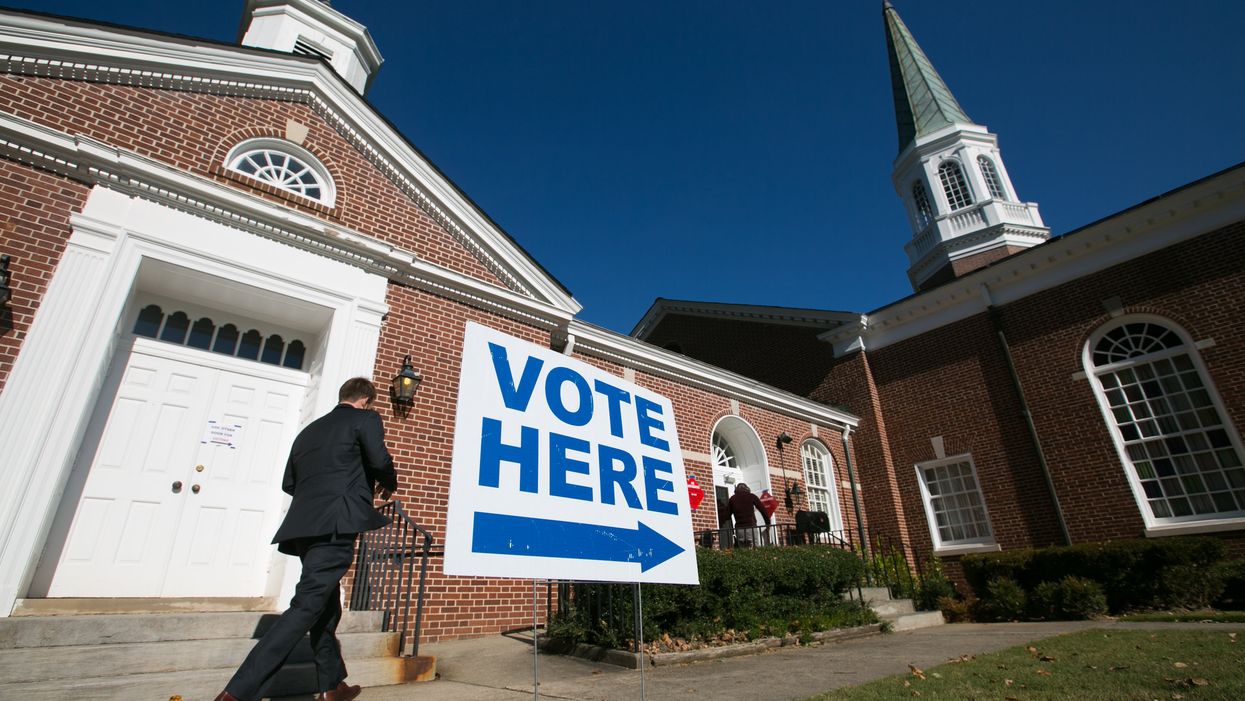A Georgia man is doing his part to keep the voter rolls clean. Or he's a guy with too much time on his hands.
Either way, someone named Lawrence Hoskins is a central figure in the latest voting rights lawsuit in the Peach State. He appears on page 14 of a 195-page complaint filed by civil rights groups against the Board of Registration and Elections in DeKalb County, a decidedly Democratic slice of Atlanta and its suburbs to the east.
The suit, filed Wednesday in federal court, alleges the election officials violated federal law and constitutional voting rights protections by failing to do enough to confirm the registration information of more than 50 people and then notify them before they were dropped from the rolls in the past two years.
Hoskins' role is perfectly legal under state law, which permits a registered voter to challenge another person's voting qualifications by filing a written complaint with a county.
So, he did just that: According to the suit, the board reviewed "approximately 100 challenges" Hoskins filed after poring over Postal Service change of address data, which he acquired from "a company in New York," as well as "home-purchase data" to identify people who had potentially moved. He then conducted "door-to-door canvassing" and presented his findings to the elections board in DeKalb County, which is the state's fourth most populous at almost 700,000 people.
State law mandates that boards hold a hearing to consider such a challenge and notify those with eligibility under question. The board then determines whether to keep people on the rolls.
The lawsuit doesn't challenge what Hoskins did, only how the board responded to him.
Election officials there "have encouraged, solicited, and acted on extraordinary voter challenges that extend beyond the routine list maintenance activities that are required by state and federal law" since 2018, the suit contends. Those measures include actively soliciting challenges to voters in Decatur, the county seat, where Hillary Clinton got five out of every six votes in 2016 despite losing statewide.
Two telephone calls to the only Lawrence Hoskins with a listed number in the Atlanta area were not returned Thursday.
The lawsuit also points to challenges brought against seven people whose address was listed as a place where homeless people are able to stay overnight and pick up their mail. An employee of the center who also serves on the elections board filed the challenge.
The suit hinges in part on whether the county adhered to the requirements of a federal law prohibiting the dropping of a person from the rolls unless they've been sent a notice and subsequently failed to vote in the next two federal elections, which didn't happen for those who were removed, according to the complaint.
"All counties in Georgia should be on notice that they cannot skirt the requirements of federal law with impunity," Sophia Lin Lakin, deputy director of the American Civil Liberties Union's Voting Rights Project, said in a statement.
The ACLU and the Lawyers' Committee for Civil Rights Under Law filed the lawsuit on behalf of the Georgia State Conference of the NAACP and the Georgia Coalition for the People's Agenda.




















